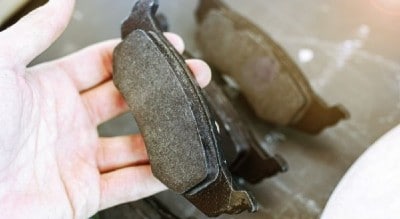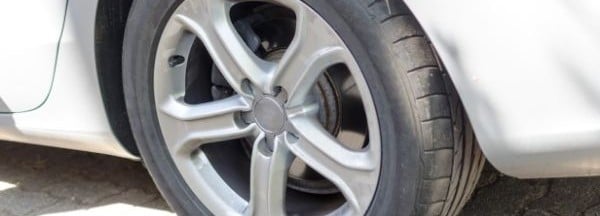It is common to hear scraping, knocking, or groaning noise when braking if the braking components are not in good working condition due to wear or breakdown. The low rumbling, creaking, or grinding noise might be more prevalent when braking at low speed. In this article, we will help you understand the common causes of these noises and how you can fix them.
Are you looking for a quick solution to your car’s braking system making noises at low speed? Use the EPAuto Lug Wrench to disassemble the car wheel and then check for loose components causing the noises. Use the MG Chemicals Isopropyl Alcohol to clean any accumulated grime, and then apply the Liqui Moly Brake Anti-Squeal Paste to reduce the vibrations.
Read also: best audiophile car speakers 2024
Noise When Braking At Low Speed: Why & How To Fix
Is your braking system producing some noises when braking at low speed? Let us look at the common causes of these noises and how you can fix them.
Causes of Noise When Braking At Low Speed
Noises when braking at low speed are usually an indicator of a defective braking component. Here are some of the common causes of noises when braking at low speed.
Worn-Out Brake Pads
Worn-out brake pads are one of the main causes of weird noises when braking at low speed. Usually, the brake pads are made of a blend of copper, iron, and graphite. When the brake pad wears over time, the outer metallic cover gets into contact with the rotors, causing a grinding sound especially when braking at low speed.
You can avoid expensive repairs by stopping your car immediately when you hear a grinding noise. Sometimes the brake pads don’t wear out uniformly, causing a brake judder. At low speeds, the rotors are turning slowly, and might not be able to overcome the resistive force due to the uneven wear, causing a creaking noise when braking.
Keep in mind that the braking material degrades and hardens over time, and will not work smoothly, quietly, and efficiently as a new one. Failure to replace the worn-out brake pads can cause damage to other braking components.
Rust, Dirt And Other Solid Debris Between The Rotor And The Brake Pads
The braking system elements including the caliper, rotors, and brake pads will always be exposed to the debris, water, dirt, and mud from the road surface. There are high chances of the solid particles getting trapped between the rotors and brake pads when driving at low speeds.
These particles increase the brake pad dynamic friction coefficient causing a squealing or grinding noise. The grinding noise is more prevalent when braking at low speed due to the increased brake pad temperatures.
The exposure of brake rotors to water can also lead to a build-up of rust, preventing the brake pads from smoothly gripping the rotors, causing noises when braking. Keep in mind that rust can also build up if the car is immobile for several days. Also, groaning noise when braking at low speed can occur if moisture builds up in the rear wheels drum assembly.
Worn-Out Rotor Disks
Using low-quality braking pads or using worn-out braking pads is the main cause of wear to rotor disks. The rotor disks can also wear out if you wash them with cold water before cooling down.
Worn-out rotor disks will have scratches, ridges, and cracks on the surface. Keep in mind that braking noises caused by a worn-out brake disk or a surface-deflected brake disk will be accompanied by irregular vibrations when braking at low speeds.
Unlubricated Caliper Screws
If you fail to properly lubricate the caliper bolts and screws, you might hear some scraping sound when braking at low speeds.
Broken Brake Pad Shims
Brake pad shims are the metal adhesive rubber that sits between the brake pad and the brake caliper, eliminating the small gaps that can cause weird noises. If the brake pad shims are worn-out, they will lead to a metal-to-metal contact which eventually causes a grinding noise. When braking at low speeds, broken brake pad shims can also cause knocking noise.
Low-Quality Brake Pads
High-quality brake pads have the braking elements blended in the right ratios to ensure effective braking with minimal noise.
The manufacturers of the cheap aftermarket pads sometimes fail to use the right materials or the right ratios when blending the materials, compromising the quality of the brake pad. The substandard brake pads scratch the surface of the rotors, producing a creaking sound when braking.
How To Fix Brake Noises When Braking At Low Speed
Now that you understand the major causes of brake noises when braking at low speed, let us look at how you can fix them.
Check For The Loose Parts
Loose bolts and screws are a major cause of clunking noise when braking at low speeds.
For you to check for any loose part, you will need to first disassemble your car’s front wheels using the EPAuto Lug Wrench.
Try to wiggle the rotor, the brake pads, and the brake calipers to check whether any of the brake components are loose.
If you manage to move or vibrate any of the components using your hand, it indicates loose or damaged clippings, screws, or bolts.
This might be the cause of the knocking sound when braking at low speed, and you will need to tighten or replace the loose components.
Apply A Dampening Paste
If you continue to hear a knocking noise when braking at low speeds even after tightening the loose components by replacing the lost screws, clips, and bolts, you might need to apply a dampening paste to eliminate any vibration.
The Liqui Moly Brake Anti-Squeal Paste is a water-based compound that will help minimize the noise-causing vibrations in the braking components.
You can apply it between the metal part of the brake pad and the caliper piston.
Allow this dampening paste to dry in about 2 to 3 hours before reassembling the wheel.
Once dry, this paste will become darker and sticky, and so you can easily tell when it is dry.
Check The Rotor And The Brake Pads
Check for any dirt, grime, rust, or solid debris between the brake pads and the rotor.
For instance, debris in the drum assembly can cause grinding rear brakes at low speed.
Wash them thoroughly using MG Chemicals Isopropyl Alcohol to remove any solid particles and then check for wear and tear.
If any of the components is worn out, consider replacing them.
Noise When Braking At Low-Speed FAQ
What is the Dragging Noise When I Brake?
The dragging noise is mainly caused by damaged hub bearings, failing wheel bearings, or a worn-out brake lining.

Why Do My Brakes Grind At Low Speeds?
A grinding noise when braking at low speeds could mean your brake pads are worn out and there is metal-to-metal contact between the metallic cover of the brake pad and the rotor.
Why Do The Brakes Squeal At Low Speed?
The main cause of a squealing noise when braking at low speed is the vibration of the brake pads against the rotor. This vibration could be a result of trapped debris or dirt in the braking mechanism. Read also: best automotive sound deadening materials 2024
Why Do My New Brakes Make Grinding Noise At Low Speed?
If your brake system makes a grinding noise at low speed when the brakes are still new, it could be as a result of solid particles being trapped between the brake pad and rotor, causing the grinding noise.
Final Words About Grinding, Creaking, Low Rumbling, Groaning, Knocking Sound When Braking At Low Speeds
Is your car braking system making a groaning, creaking, grinding, or low rumbling sound when braking at low speeds? You can use the EPAuto Lug Wrench to disassemble the car wheel and check whether some loose braking components are causing the knocking sound. You can use the MG Chemicals Isopropyl Alcohol to clean any accumulated grime, and then apply the Liqui Moly Brake Anti-Squeal Paste to reduce the vibrations.

Dave Pearson is a Canadian musician, sound editor, and audiophile. He is also the founder and owner of the website SoundProofGeek. On SoundProofGeek, Pearson offers advice and resources on audio equipment, including how to assess and improve audio quality, how to troubleshoot and repair audio equipment, and how to improve the music listening experience.
Table of Contents



